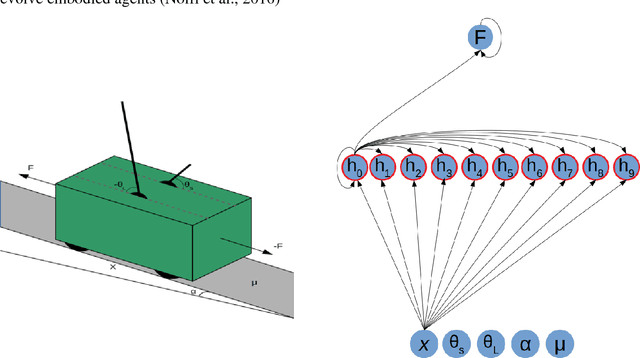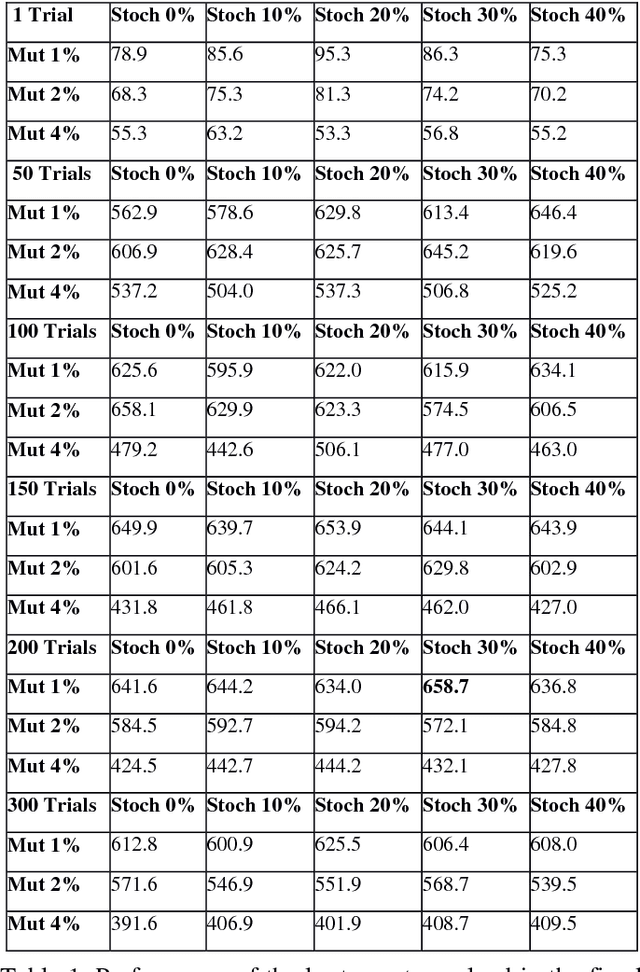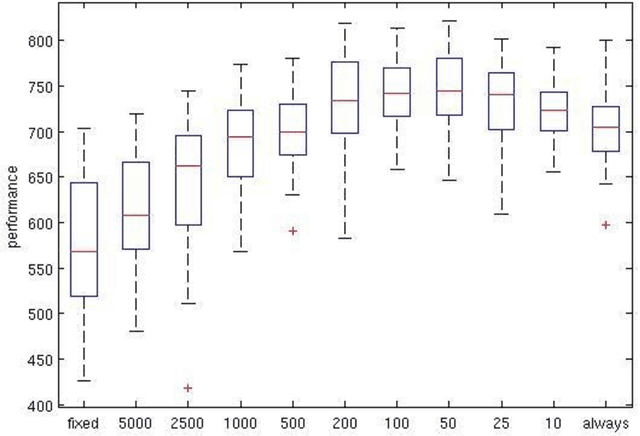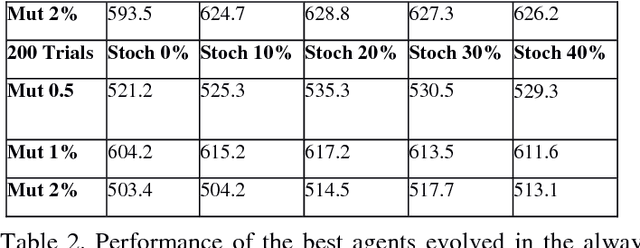Moderate Environmental Variation Promotes the Evolution of Robust Solutions
Paper and Code
Mar 01, 2018



Previous evolutionary studies demonstrated how evaluating evolving agents in variable environmental conditions enable them to develop solutions that are robust to environmental variation. We demonstrate how the robustness of the agents can be further improved by exposing them also to environmental variations throughout generations. These two types of environmental variations play partially distinct roles as demonstrated by the fact that agents evolved in environments that do not vary throughout generations display lower performance than agents evolved in varying environments independently from the amount of environmental variation experienced during evaluation. Moreover, our results demonstrate that performance increases when the amount of variations introduced during agents evaluation and the rate at which the environment varies throughout generations are moderate. This is explained by the fact that the probability to retain genetic variations, including non-neutral variations that alter the behavior of the agents, increases when the environment varies throughout generations but also when new environmental conditions persist over time long enough to enable genetic accommodation.
 Add to Chrome
Add to Chrome Add to Firefox
Add to Firefox Add to Edge
Add to Edge